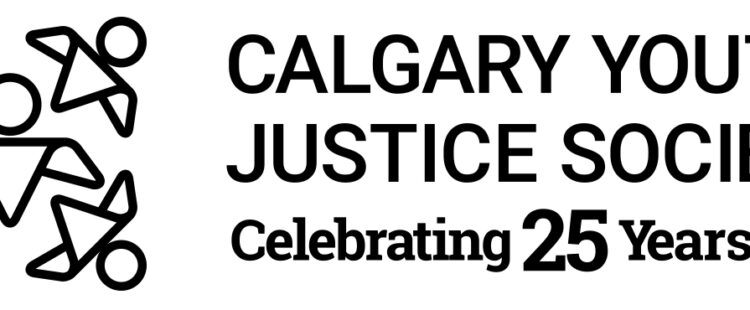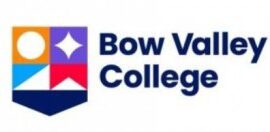Deadline for submissions: January 15, 2024
Project Timeframe: May 2024 to October 2024
The Calgary Youth Justice Society is seeking an experienced strategic planning consultant or group to lead us through a strategic planning process. We are coming to the end of our current 5-year strategic plan where we experienced significant success to not just meet but exceed our strategic goals. The overall goal for the strategic planning process is the development of a dynamic plan which will guide the work of the staff and board over the next 5 years (2025-2029) to build on our current successes and identify new opportunities to continue to make a positive impact in the lives of youth in Calgary and across Alberta.
About Calgary Youth Justice Society (CYJS)
Since 1996 the Calgary Youth Justice Society has helped over 15000 youth find what is strong in their lives through programs proven to build resilience, reduce risk and nurture community connections. Our approach is always strengths focused, seeing beyond what’s wrong to nurture what’s strong. Our impact is young people who feel valued and supported to be a part of our community in a meaningful way.
Vision: Young people contribute to, and flourish in, safe, caring communities.
Mission: Calgary Youth Justice Society engages communities with young people to foster choice and opportunities that build upon their strengths, diverting them from crime. Calgary Youth Justice Society programs support young people who are vulnerable to risk-taking and criminal activities. For more information about Calgary Youth Justice Society visit www.calgaryouthjustice.ca
Scope of Work
The process should focus on developing the following information into a comprehensive report with an executive summary that outlines the below sections:
Phase 1: Pre-Work (April 2024 to May 2024)
Current Operations
- Conduct an overview of current programming, staffing, funding, operations, infrastructure, outputs, and outcomes using a SWOT analysis to provide a basis for the future of the organization by detailing where we are coming from.
Environmental Scan (PESTLE – Political, Economic, Social, Technological, Legal and Environment)
- Review the local and provincial environments with a focus on the overall landscape/climate as it relates to the work we do.
Stakeholder Analysis
- Facilitate stakeholder input (15 staff, 10 Board of Directors, donors, volunteers, program partners and community members) through interviews and/or surveying.
Scope of Work
The process should focus on developing the following information into a comprehensive report with an executive summary that outlines the below sections:
Phase 1: Pre-Work (April 2024 to May 2024)
Current Operations:
- Conduct an overview of current programming, staffing, funding, operations, infrastructure, outputs, and outcomes using a SWOT analysis to provide a basis for the future of the organization by detailing where we are coming from.
Environmental Scan (PESTLE – Political, Economic, Social, Technological, Legal and Environment)
- Review the local and provincial environments with a focus on the overall landscape/climate as it relates to the work we do.
Stakeholder Analysis:
- Facilitate stakeholder input (15 staff, 10 Board of Directors, donors, volunteers, program partners and community members) through interviews and/or surveying.
Phase 2: Planning Session (June 2024)
- Development and facilitation of a full planning day with Board and Staff
Phase 3: Development of Plan (July to October 2024)
Strategic Positioning
- Review mission and vision of the organization, it should also include our “elevator pitch/case for support” of why someone should invest in us
Projected Financials
- Review the financial sustainability of the organization and the operations and provide insights into needs and opportunities over the next 3-5 years.
Risk Management
- Review potential risks within the organization and identify measures to mitigate any potential risks.
Key Strategic Objectives
- Identification of immediate (1 year), intermediate (3 year) and long term (5year) strategic objectives.
Short- and Long-Term Goals and Metrics
- Guide the development of goals and metrics for strategic objectives
Progress Tracking
- Develop tools and processes for tracking progress and provide coaching on implementation of tools and processes
The Process
The strategic planning process resulting in the culmination of the report will be a collaborative process between the Board, staff and the consultant and should include:
- Kick off meeting with the Board and leadership team (Executive Director, Program Director, Finance Director and Strategy, Evaluation, and Impact Specialist)
- Review of current strategic plan
- Design and execution of planning process guided by a project plan and timeline
- Development and facilitation of staff and Board strategic planning session
- Meetings to discuss and draft the final strategic plan
- Presentation of final strategic plan to Board and staff
Key Deliverables
- Foundational Report – Made up of the mission, vision and current operations of the organization
- Findings Report – Made up of information gathered from the environmental scan and stakeholder interviews
- Draft Strategic Plan – Integrating in the feedback and information developed from the Foundational and Findings Reports Plan with Key Strategic Objectives, Goals and Metrics
- Tools and resources to annually track plan progress
- Final Strategic Plan – Delivered in 3 formats (full detail, summary document and a presentation format) this strategic plan identifies the future of the organization and lines up a clear path to success.
Timeline
The term of the engagement with the major milestones is as outlined below:
Phase 1 Pre-Work: April-May 2024
Phase 2 Staff/Board Planning Day: June 2024
Phase 3 Draft Strategic Plan: August 2024
Final Strategic Plan: October 2024
The selected firm should anticipate a six-month timeframe for the scope of work and should include a schedule that shows the operations over the course of those six months. If a different period of time is being proposed, the proposing firm should indicate why more or less time is needed.
Proposals should include:
- About your firm
- Bios of the team that will work on the project
- Proposal of approach
- Schedule
- Proposal of fees
- 3 References Including a Summary of the Scope of Work Performed (Ideally similar organizations/similar scopes)
Response Submissions
Responses must be received by the deadline indicated in this RFP and emailed (PDF) to:
Selection Process: February-March 2024





